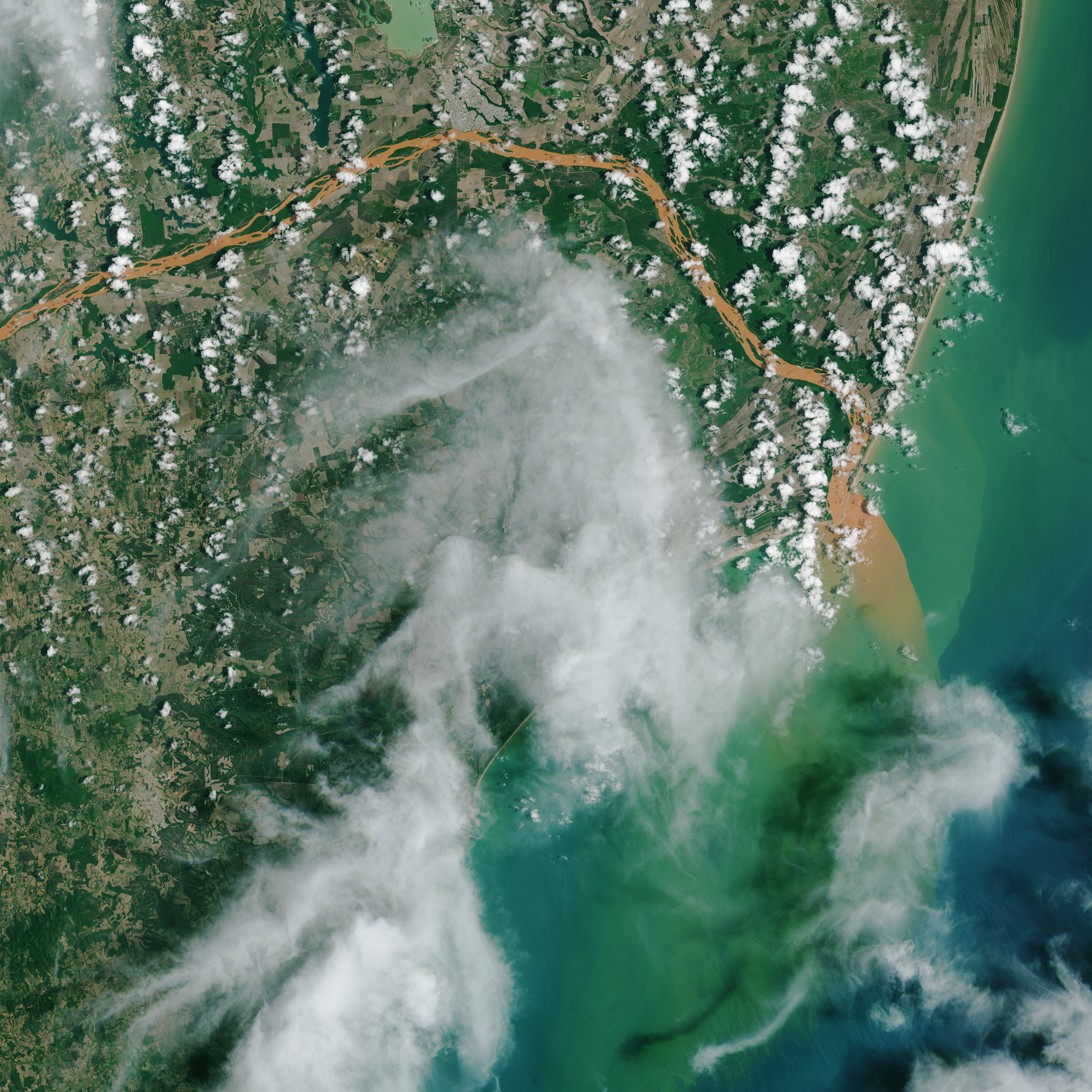Waves breaking at the mouth of Brazil’s Doce River, where it meets the Atlantic, have become the first-ever waves and part of the ocean to be given legal personhood, in a decision made by the municipal council of the nearby city of Linhares.
The new law, which was first approved as a bill in June 2024 and put into effect in mid-August, requires that the ecological balance of the waves – and the waters connected to them – must be protected. That means ensuring that their physical and chemical conditions are safeguarded, particularly from human interference like pollution.
It’s not just about the condition of the waves and their related ecosystems, however. The waves are also entitled to “foster harmonious interactions with humans through cultural, spiritual, leisure, and ecological practices.”
Vanessa Hasson, an environmental lawyer and executive director of the Brazilian NGO Mapas, told Hakai Magazine that this was included to acknowledge the significant cultural and economic role of the waves in the community; it’s a popular area for surfing.
Both pollution and surfing came to the forefront back in 2015 when the Fundão Dam near the city of Mariana collapsed, sending 60 million cubic meters – that’s about 25,000 Olympic swimming pools – of iron ore waste and mud into the Doce River.
The sludge made it all the way to the mouth of the river at Linhares, affecting aquatic life along the way and preventing the waves that made the area so popular with surfers.
The impact of the dam disaster could even be seen from space.
Giving the waves and their connected waters rights may be one way in which such incidents could be prevented in the future or, at the very least, hold those responsible accountable – that’s one of the new protections the waves are entitled to.
Of course, the waves can’t represent themselves when it comes to ensuring their new rights are upheld – they might have legal personhood, but they can’t speak. With that in mind, a committee was selected to play that role, with representatives from the surfing community, the local Indigenous community, and Linhares city council’s environment committee.
While this is the first time a government body has given part of the ocean legal rights, it’s far from the first time a body of water has been granted legal personhood.
Whanganui River in New Zealand was the first river in the world to be given the same legal rights as a human, and has since been followed by the Magpie in Canada, the Klamath in the USA, and the Ganges and Yamuna in India (although the Supreme Court of India later overturned the decision).
In Ecuador, the rights of nature are enshrined in the constitution – and breaching those rights has been taken seriously. Back in July 2024, a court ruled that a river running through the country’s capital had its rights violated by pollution and that immediate action should be taken to deal with the problem.
Source Link: In A World-First, Part Of The Ocean Has Been Granted Legal Personhood
